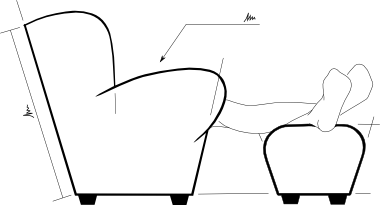Open Source Hardware
What I’ve been calling “Open Source Engineering” is more widely known as open source hardware, and associated to open hardware.
Often, open source hardware is taken to mean electronics, but this is just because a large number of projects are electronic. Open source hardware refers to any product with a physical component. This is why personally, I prefer open source engineering; although I appreciate that in many places, “engineering” is also synonymous with electronic engineering. There is no winner.
-
Open Hardware means physical devices where adaptation, hacking and variation is either supported or encouraged by the item’s creator.
-
Open Source Hardware, analagous to open source software, is where the information required to build the physical items is freely available. Open source hardware is invariably also open hardware as well.
Patents Protect Ideas?
Patents intend to “protect” an idea. They give a time-limited, legal monopoly over the production of an idea in return for opening up your idea for wider discussion. The patent system’s intention: to encourage greater innovation by giving creators legal controls over their invention. After all, you can’t approach a manufacturer without showing them your design, and what is to stop them just taking the idea and not paying you?
But just like you can’t have an item manufactured without showing the manufacturer the details, you also can’t distribute a product without giving away the result of the design. And any third party can — with enough resources — can reverse engineer and re-create that item. Every item intrinsically contains the compiled result of the source design.
Open Source Hardware is Not That Different
In open source hardware, the detail of the idea is still released publicly to be available for discussion. All that changes is that there is no official legal protection. Instead, in return, you open up your idea to a whole world of people who will talk about their ideas because you have been willing to talk about yours.
The world is full of organisations and individuals who make money from ideas that are “unprotected” from copying. There’s a big difference between having an idea, and doing anything about it.
Open source hardware tends to depend on two types of business model:
-
Focus on hardware selling — by keeping ahead of the competition, the originator commands a prestige position in the market. If imitators are also of lower quality, this will only serve to drive customers to the originators.
-
Focus on expertise as a service — if another manufacturer is more efficient, this promotes greater access. Then as the original creator, and with a community of users, you will have the greatest understanding and knowledge store to provide commercial services.
Further Reading:
-
Wired — Build It. Share It. Profit. Can Open Source Hardware Work?
-
p2p foundation — Open Source Hardware Business Models
-
David Mellis — The open-source hardware distribution model?
